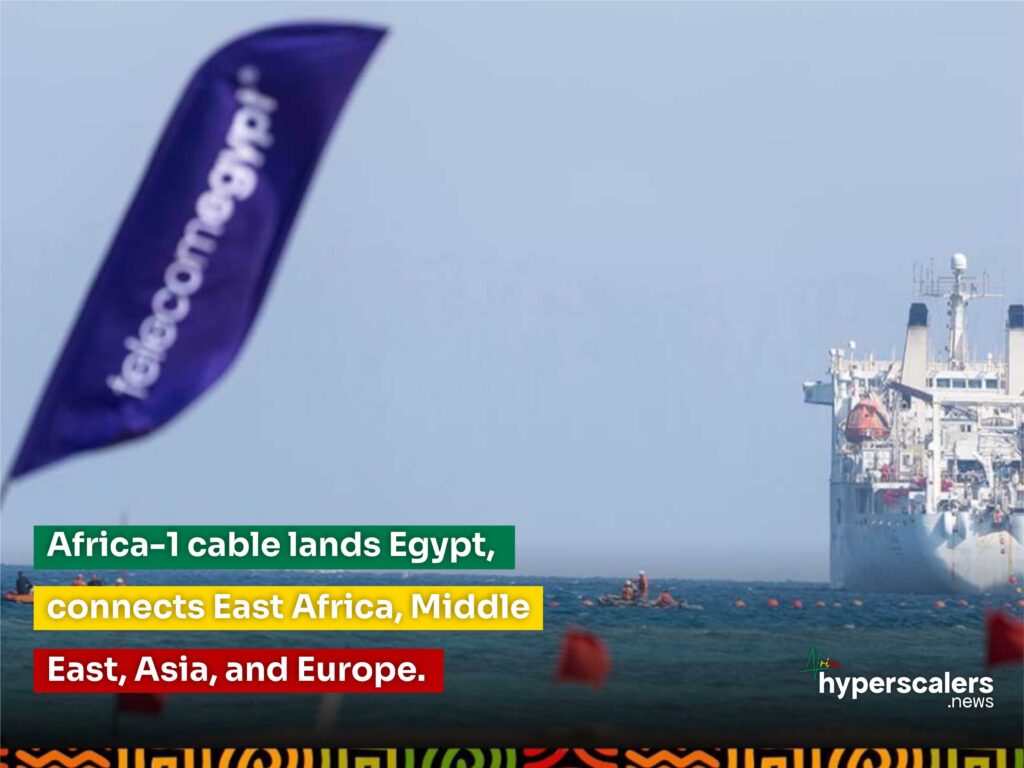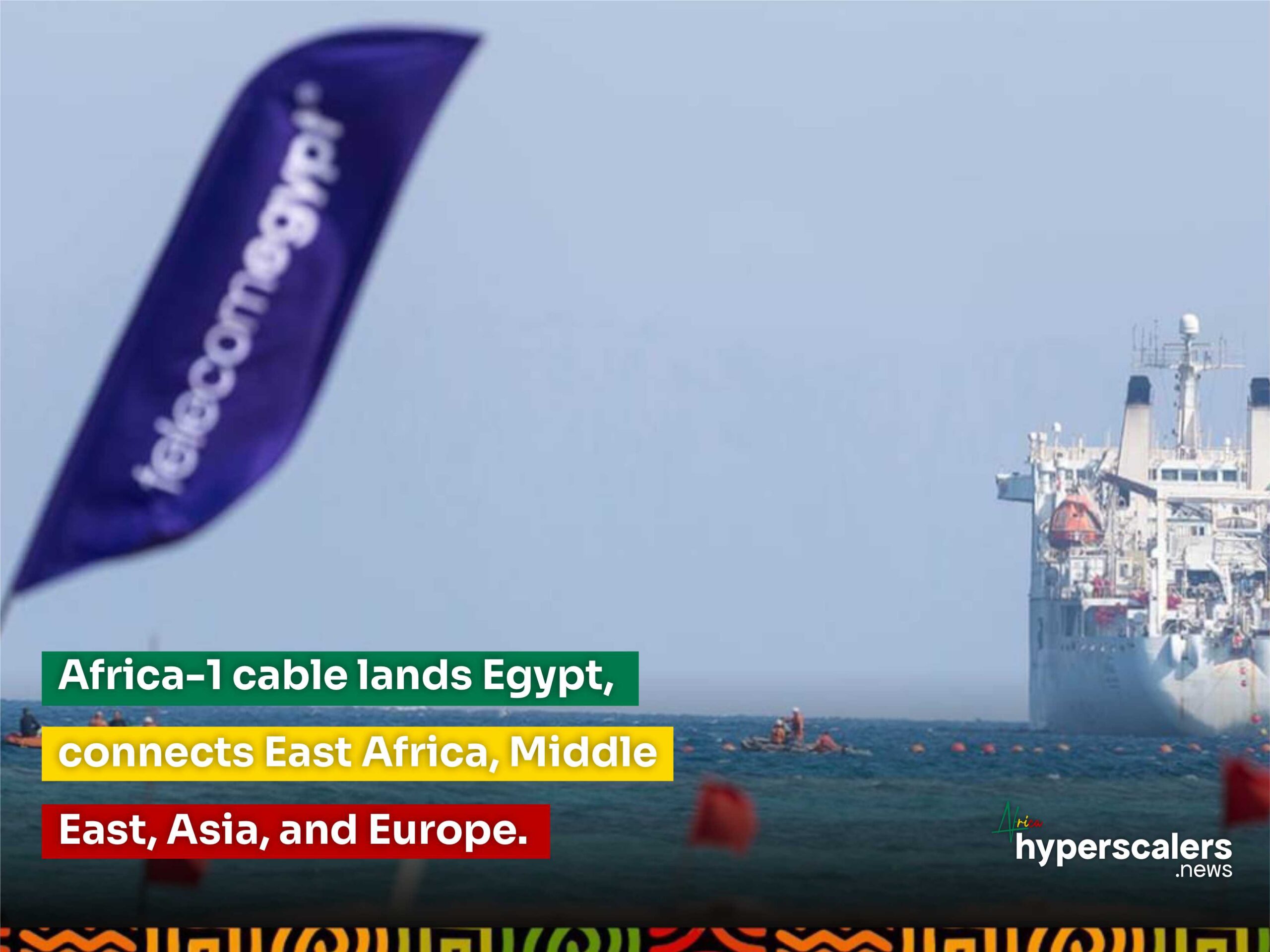Telecom Egypt and Alcatel Submarine Networks (ASN) have announced the successful landing of the Africa-1 subsea cable at the Ras Ghareb cable landing station in Egypt.
Built and deployed by ASN, the Africa-1 cable will provide critical connectivity across East Africa, the Middle East, Asia, and Europe. Spanning over 10,000 km, it features eight fiber pairs and connects 11 landing points across key regions, including Bejaia (Algeria), Djibouti City (Djibouti), Port Said and Ras Ghareb (Egypt), Marseille (France), Mombasa (Kenya), Karachi (Pakistan), Duba (Saudi Arabia), Berbera (Somalia), Kalba (UAE), and Al Hudaydah (Yemen).
This marks the third landing for the Africa-1 cable, following previous landings in Mombasa (Kenya) and Karachi (Pakistan). Though initially slated for completion by the end of last year, the cable is now expected to be fully operational in 2025.

“Partnering with the Africa-1 consortium to build this transformative subsea system is a significant milestone for all parties involved, as well as for the global economy and connectivity,” said Mohamed Nasr, managing director and CEO of Telecom Egypt. “By making additional subsea routes available in the growing markets of the Middle East, Asia, and Africa, this system will boost broadband capabilities and expand our subsea network to meet the rising demand for reliable, high-speed communications, especially for bandwidth-intensive applications such as artificial intelligence.”
The Africa-1 consortium includes major telecommunications players such as Algerie Telecom, e& (Etisalat), Mobily, Pakistan Telecommunications, Telecom Egypt, TeleYemen, and ZOI.
Egypt has proven a popular location for subsea cables with more than 15 cables landing in the country. The 2Africa and Red2Med cables land in Ras Ghareb, with the SeaMeWe-6 cable set to join in 2026.
In recent years, due to increased security concerns—especially following Houthi attacks on shipping lanes in the southern Red Sea—telecom companies have explored alternative fiber routes to enhance regional connectivity.





